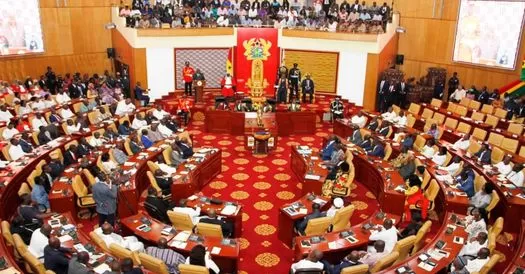This page discusses the house of representative in Ghana starting from the time before independence until Ghana gained independence, it also includes the house under the constitution.
The Parliament of Ghana:
The Parliament of Ghana is the legislative body of the Government of Ghana. Ghana achieved Independence on 6th March, 1957. The political struggles that preceded this historic event date back over a hundred years.
History of House of Representative:
As far back as 1850, Ghana, then The Gold Coast, was given its own Legislative Council to advise the colonial Governor in enacting legislation mainly in the form of Ordinances “for the peace, order and good government of the subject.” The Legislative Council was purely advisory as the Governor exercised all legislative and executive powers.
In 1916 the Legislative Council was reconstituted to include nine nominated officials, six of whom were Africans, as opposed to eleven officials and the Governor. The first Legislative Council elections ever to be held took place in 1925 under the Guggisberg Constitution. Under this arrangement the Governor still retained complete control of legislation.
House of Representative under the constitution:
Under the 1946 Bums Constitution which replaced the Guggisberg Constitution, the representatives of the people formed the majority in the Legislative Council. The Governor ceased to be ex-officio President of the Legislative Council and an unofficial Member was appointed President. This system continued until 1951 when the Legislature elected its first Speaker under the 1950 Constitution.
In 1951 the first large-scale elections to the Legislative Assembly took place when 75 Members were elected. There were three nominated ex-officio Members and six special Members representing commercial and mining interests.
The 1954 transitional Constitution provided for an Assembly of a Speaker and 104 Members elected on party lines on the basis of universal adult suffrage.
In 1957, when Ghana achieved full political Independence the constitution was fashioned after the Westminster model. In June, 1960, ten women were elected by the National Assembly to fill specially created seats. This was done to expose women to parliamentary life. This system of election was not intended to be permanent. The Act made no provision for filling a vacancy caused by death, resignation or expulsion of a woman Member.
On 1st July, 1960 Ghana became a sovereign unitary Republic. In February, 1964 Ghana adopted a one-party system of Government. The First National Assembly of the Republic was dissolved in 1965 and a general election in which all the 198 Members, all of them Members of the national party, the convention People’s Party (C.P.P.) were elected unopposed. The 1964 Constitutional Amendments among other things increased the powers and prerogatives of the President.
In February, 1966 the First Republican Government was overthrown by a military coup which installed a military government that remained in power up to September, 1969, when, on its own volition, it handed over power to another constitutionally elected government, and thereby restored parliamentary rule once again.
After only 22 months in office the second parliamentary democracy also succumbed to another military rule between January 1972 and October 1979, when under much political pressure, that military government was compelled to usher in the Third Republican parliamentary system. In December 1981 parliamentary democracy was once more thrown into cold storage as a result of yet another military coup. However, the country returned to constitutional rule again on 7th January, 1993.
After 11 years of military rule, a new constitution was approved in a 1992 referendum. Presidential elections were held in November and were won by Jerry Rawlings, leader of the 1981 coup and subsequent military ruler. The opposition contested the results and boycotted the December parliamentary elections. As a result, Rawlings’ won 189 out of 200 seats in Parliament.
All parties participated in the 1996 parliamentary elections. The 2000 elections were significant in that President Rawlings was constitutionally barred from seeking another term. In the presidential poll, John Kufuor defeated the John Atta Mills in a run-off election. In the 200-seat Parliament, the NPP won 100, followed by the NDC’s 92. Small political parties and independents won the remaining seats.
Kufuor was re-elected in 2004 and the New Patriotic Party (NPP) won 128 out of 230 seats in the concurrent parliamentary election. The main opposition National Democratic Congress (NDC) won 94, while two other parties – The People’s National Convention (PNC) and Convention People’s Party (CPP) – won 4 and 3 seats, respectively. An Independent captured the remaining seat.
The simple majority (or First Past the Post) voting system is used in Ghana’s parliamentary elections. Since 2012, the country is divided into 275 single-member constituencies. Members serve four-year terms.


